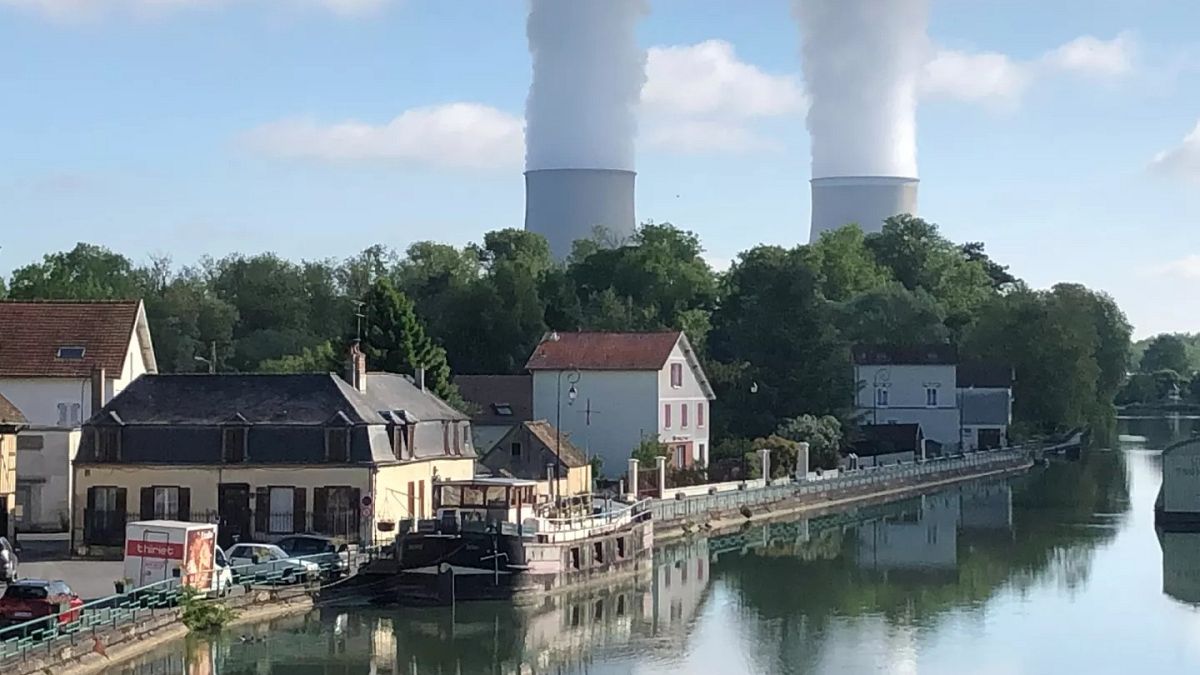
Europe’s Heatwave Forces Nuclear Plant Shutdowns in France and Switzerland
A record-breaking heatwave sweeping across Europe has forced several nuclear power plants in France and Switzerland to reduce operations or shut down completely, highlighting the vulnerability of nuclear energy infrastructure to extreme weather events.
Nuclear Power Plants Struggle with Extreme Heat
A severe heatwave gripping Europe has caused widespread disruption, including the temporary shutdown or reduction in output of several nuclear power plants in France and Switzerland. This is due to the crucial role of river water in cooling the reactors. Nuclear power plants typically draw water from nearby rivers or the sea for cooling, releasing the warmer water back into the water bodies. However, the current heatwave has already significantly raised water temperatures, limiting the effectiveness of this cooling process and posing a risk to local ecosystems. Releasing additional heated water into already warm rivers could cause irreparable harm to aquatic life.
In Switzerland, Axpo, the operator of the Beznau nuclear power plant, announced the shutdown of one reactor unit and a reduction to 50% capacity for the second due to high river water temperatures. The River Aare, which provides cooling water for the plant, reached temperatures of 25 degrees Celsius, prompting the curtailment of activities to prevent excessive warming of the river. While Switzerland is phasing out nuclear power by 2033, existing plants remain operational as long as they meet safety standards. In France, Électricité de France (EDF) shut down the Golfech nuclear power plant in response to extreme heat warnings and concerns about exceeding the safe temperature threshold for the Garonne River, which serves as a cooling source. EDF cited potential river temperatures reaching 28 degrees Celsius even without additional heated water from the plant.
The heatwave’s impact extends beyond these specific plants. Output reductions have been reported at other sites, including the Blayais and Bugey nuclear power plants, which draw cooling water from the Gironde and Rhône rivers respectively. The Bugey plant faces potential shutdown. France’s heavy reliance on nuclear power, providing approximately 65% of its electricity, raises concerns about the long-term implications of such shutdowns. The government considers nuclear power environmentally friendly, but this incident highlights its vulnerability to climate change impacts.
Impact on Energy Grid and Future Implications
Despite the curtailment of nuclear power production, France’s energy grid has not experienced significant disruptions. According to the French grid operator, RTE, the operational nuclear power plants can meet the current needs of the population, and the country exports excess electricity. However, experts warn that energy consumption peaks during heatwaves will become more frequent as global temperatures continue to rise. This increases the likelihood of future disruptions and underscores the need for strategies to mitigate the risks associated with climate change impacts on energy infrastructure. The heatwave has exposed the vulnerability of nuclear power plants, particularly in regions with already stressed water resources, to extreme heat events. The increasing frequency and intensity of heatwaves due to climate change pose a significant challenge for the long-term reliability and sustainability of nuclear power generation.
The events highlight a need for adaptation strategies within the nuclear power sector. These might include investments in alternative cooling systems, improved water management practices, and more robust planning for extreme weather events. Moreover, the incident underscores the broader implications of climate change for energy security and the importance of diversifying energy sources to enhance resilience against extreme weather. The confluence of high energy demand for cooling and reduced nuclear power output raises critical questions about the future of energy production in a changing climate. The incident serves as a stark reminder of the intertwined challenges of climate change, energy security, and infrastructure resilience.
Key Takeaways
- The European heatwave has caused several nuclear power plants in France and Switzerland to reduce operations or shut down due to high river water temperatures impacting cooling systems.
- This highlights the vulnerability of nuclear power plants to extreme weather events and the potential risks to local ecosystems.
- While France’s energy grid currently remains stable, experts anticipate more frequent and intense energy consumption peaks during future heatwaves.
- The incident necessitates the development of adaptation strategies within the nuclear power sector and a broader discussion of energy security in the context of climate change.
- The event underscores the interconnectedness of climate change, energy security, and the need for resilient energy infrastructure.
